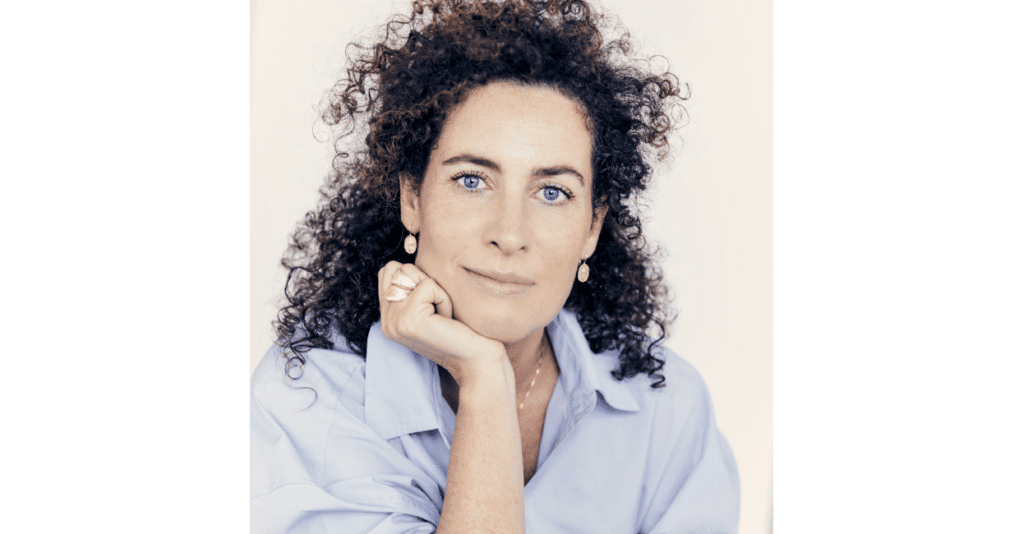
Tamara Gijrath spoke with sixty mothers and daughters for her book "If I'm Very Honest. It became a personal quest into one of the most complicated and defining relationships in a human life. The book contains all candid conversations with Nada van Nie, Günay Uslu, Thérèse Boer, Inge de Bruijn, Quinty Trustfull, Monique des Bouvrie, Frederique van der Wal, Aaltje van Zweden and Edsilia Rombley, among others, who unfeignedly told about their relationship with mother or daughter. Now Tamara is candid to MASTERS. Who helped her throughout her career path?Text: Mical Joseph
Image: Yvette Kulkens Photography
"I wanted to be a young mother AND I wanted to write. Nothing more than those two things. So from a young age I was always writing and absorbing much of my surroundings. After getting my high school diploma, I left for Israel for one year, where I took a preparatory year of Social Sciences for foreign students at Tel Aviv University. During that year, I found out that my heart was in journalism."
"I was accepted to the School of Journalism in Utrecht, but the journalism I envisioned, however, was not what I found during my studies. I found the course rather flabby and didn't feel at home there. The late Feike Salverda, a celebrated journalist at the time, advised me that if I really wanted to learn the trade, the local newspaper was a good starting point: 'Sit next to the telex and write, write, write.' Shortly thereafter, I met Yves. He started a publishing company and edited a number of local newspapers and magazines. And so I was able to ply my trade. I started writing about nostalgic ox sausage on a crate at the local butcher's. Eventually I made great human interest stories and interviews and became editor-in-chief of a number of titles.
Last year, when corona broke out, I took a step back at MASTERS HQ and decided to do what I always wanted to do: write a book."
"The women around me are my wheelbarrows. Before I even started putting my thoughts and ideas on paper for this book, I felt tremendous support from my sister, my girlfriends and in my mind my mother. I have experienced in my life that the power of women is so strong. In addition, of course, Yves also plays an important role in my life. A wheelbarrow? He is one half of the twosome we have formed for thirty years. We reinforce each other time and again: what I lack, Yves complements and vice versa. So I presented my idea for the book to Yves on a beautiful sunny day on the terrace of Hotel De L'Europe in Amsterdam. In a split second, Yves showed his enormous enthusiasm and said, "This is it. That moment gave me such power."
"Definitely, the moment I first became a mother. It was a moment of worry, pain, uncertainty and vulnerability. In one fraction, you are at once the most vulnerable person on earth. It's exactly as one of the mothers in my book so aptly said, 'You are as lucky as your unluckiest child.'"
"I already had this idea when my mother was alive, but it wasn't the time to start this process then. After my mother passed away, I couldn't just go on with life without dwelling on hers. I talked to someone who helped me look at my mother as a woman and not as my mother. Only then did I begin to understand her better. That fact I wanted to find out. That is why I find the openness and honesty that the sixty mothers and daughters have shown for this book so special, because talking about this relationship is so personal, comes so close."
"Talk, ask and listen as long as you can. It deepens your relationship and you learn not only a lot about your mother, but so much about yourself: where do my beliefs come from? It's safe to say that your mother largely defines who you are. Above all, the book is a celebration of the love that can exist between a mother and her daughter. My mother is so in my heart, I still miss her every day. So enter into the conversation with each other. It's what you take with you as a daughter, as a child, for the rest of your life.
"Often, as a parent, you only want to show yourself from your strong side, so the child doesn't understand his or her own mistakes and doubts. So that's exactly what I don't preach for: a good balance between being 'strong' and showing doubts, that's where your strength lies. And above all, a positive outlook on life.
"The way she was in life. My mother was a woman who was good to those around her. Parenting doesn't just consist of saying how things should be done, but more importantly setting a good example."
"There are so many of those. For example, the regret you can feel when you give in, when you allow yourself to be persuaded by others to do things differently than you envisioned anyway."
"Always feeling a certain fear and not wanting to stand out has given me security, but has also limited me. In any case, it did not stimulate me and I had to teach myself that. That's why I would say to the younger Tamara, 'Jump and go!'
"To be honest, I'm not very concerned with that. Above all, I try to be a caring, kind mother and wife to my children, my husband and those around me. By being there, I hope to make a difference."
'If I'm Very Honest' is available for purchase in (online) bookstores.
© 2024 MASTERS EXPO. All rights reserved.